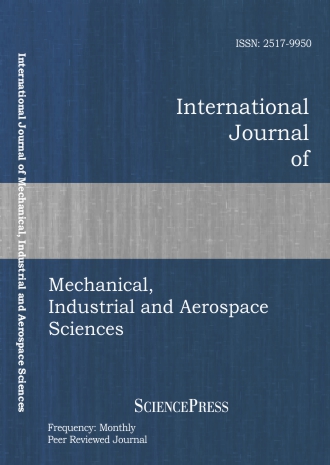
Scholarly
Volume:7, Issue: 5, 2013 Page No: 921 - 924
International Journal of Mechanical, Industrial and Aerospace Sciences
ISSN: 2517-9950
3043 Downloads
Performance and Emission Study of Linseed Oilas a Fuel for CI Engine
Increased energy demand and the concern about environment friendly technology, renewable bio-fuels are better alternative to petroleum products. In the present study linseed oil was used as alternative source for diesel engine fuel and the results were compared with baseline data of neat diesel. Performance parameters such as brake thermal efficiency (BTE) and brake specific fuel consumption (BSFC) and emissions parameters such as CO, unburned hydro carbon (UBHC), NOx, CO2 and exhaust temperature were compared. BTE of the engine was lower and BSFC was higher when the engine was fueled with Linseed oil compared to diesel fuel. Emission characteristics are better than diesel fuel. NOx formation by using linseed oil during the experiment was lower than diesel fuel. Linseed oil is non edible oil, so it can be used as an extender of diesel fuel energy source for small and medium energy needs.
Keywords:
References:
[1] BS Chauhan, N Kumar, HM Cho. "A study on the performance and